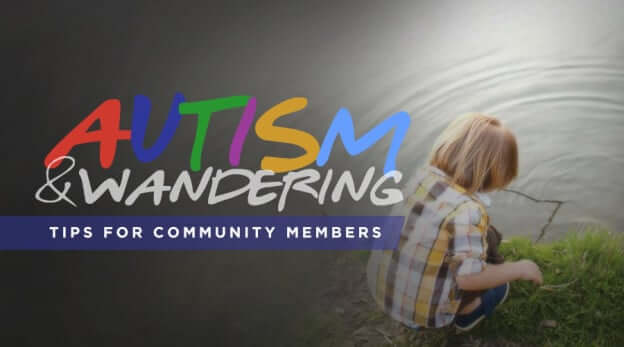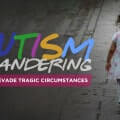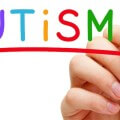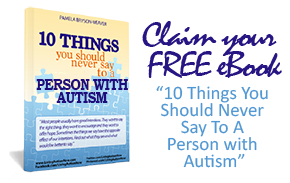Wandering or elopement is common in individuals with autism. This is more prevalent in non-verbal kids. If you happen to live in a community where autism is present, it is imperative to know precautionary measures should you come across a wandering individual with autism. Unlike atypical kids and teens (or even adults), individuals with autism who wanders are often nonverbal making the ordeal even more challenging. Here are some important tips should you come across one:
- If you live in a closely-knit community, identify individuals particularly children who have autism. A local autism group often has awareness campaign in the area. You do not have to make yourself a member but, the least you can offer is a considerate and concerned heart.
- Be reminded that an individual on the spectrum can be resilient and tenacious. They can walk for miles and miles without a care for any impending danger. If you notice a child or teen walking alone, may it be in a secluded place or in a busy street, try asking where he or she is going. If you are disregarded as if nonexistent, try to get someone else’s attention.
- Your smartphone is a significant tool in helping out. If you come across an individual with autism wandering, take a picture to easily give the law enforcement agency a visual. This will prove to be a great help when looking for missing persons. Instead of blabbering about physical description and outfit worn, you can simply show the picture for the parents or guardians to identify with.
- Individuals with autism who wander are often non-verbal and non-responsive when being called. They also fear close contact with people they are not familiar with. They can either run or bolt from uncomfortable situations.
- Talking to others can scare them, too. No matter how dangerous the situation, they can easily bolt to evade you. Be gentle when asking and avoid physical contact at first. Keep him or her in your line of sight.
- Try to gain their trust first by introducing yourself and then, asking his or her whereabouts. The words “I am here to help you” might do the trick.
- Again, your phone will prove to be a great help in wandering situations. Whether a child is with autism or not, when alone, it is imperative that you report it immediately to a law enforcement agency. Wait with the child or do not lose the child out of your sight while waiting for the help to arrive.
It takes a lot of courage and compassion not to walk away and ignore warning signs from individuals we meet on the streets. Even more so when we are busy tinkering with our own lives. However, as community members, it is our obligation to at least manifest a sense of concern especially to children with autism. We can divest tragic circumstances from occurring should we at least reach out a helping hand in trying times like this.











